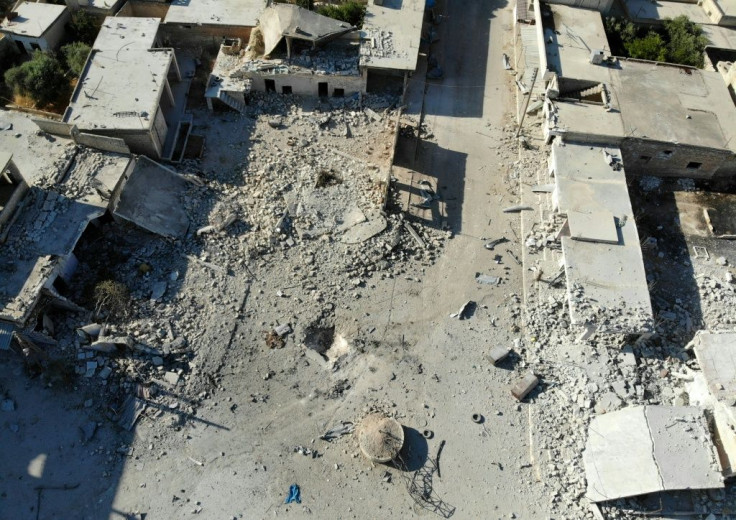Germany, Kuwait, Belgium Urge UN Vote On Idlib Ceasefire

Germany, Kuwait and Belgium have demanded that the UN Security Council vote on a resolution for all groups to "immediately cease hostilities" in Syria's Idlib province, diplomats said Wednesday.
The text of the draft, obtained by AFP, would be voted upon on Thursday, though it could be met with a Russian veto.
The draft calls for a ceasefire beginning on September 21 at noon local time, and says it would help "avoid a further deterioration of the already catastrophic humanitarian situation in Idlib."
The resolution faces strong opposition from Moscow, which countered with its own draft text supported by China, which will also be put to the vote on Thursday.
The Russian version calls for groups to "immediately cease hostilities to avoid a further deterioration of the already catastrophic humanitarian situation in Idlib" -- but does not commit to an exact date.
It also asserts that the cessation of hostilities "shall not apply to military operations against individuals, groups, undertakings and entities associated with terrorist groups."
Western nations find the wording unacceptable as it allows too much room for interpretation and may not stop the bombing of civilians.
A deal Russia and Turkey reached last year on Idlib was meant to prevent a bloodbath, but bombardment since late April has claimed a mounting death toll.
Death and displacement
Announced on September 17, 2018 in the Russian resort of Sochi, the agreement was seen as a way of averting an all-out government onslaught against the last major opposition bastion in Syria.
Months earlier, Russian-backed regime forces had reconquered the Eastern Ghouta enclave on the outskirts of Damascus with an operation that capped a years-old siege.
With around three million people living in the Idlib region, the aid community feared an offensive would trigger death and displacement on a scale yet unseen this century.
The truce deal provided for a horseshoe-shaped demilitarized zone to isolate the jihadist-dominated bastion from government-held areas.
The only provision of the deal that was implemented was the removal of heavy weapons from the buffer zone by jihadists and rebels by the end of October 2018.
Jihadists including former Al-Qaeda affiliate Hayat Tahrir al-Sham refused to fully withdraw themselves and the buffer zone never became a reality, with joint patrols also never materializing.
The regime's military operations to retake the territory it lost years ago resumed in late April, first with months of bombardment then last month with advances on the ground.
Close to 1,000 civilians have been killed since then, mostly in air strikes and shelling, according to the Syrian Observatory for Human Rights.
© Copyright AFP 2024. All rights reserved.




















